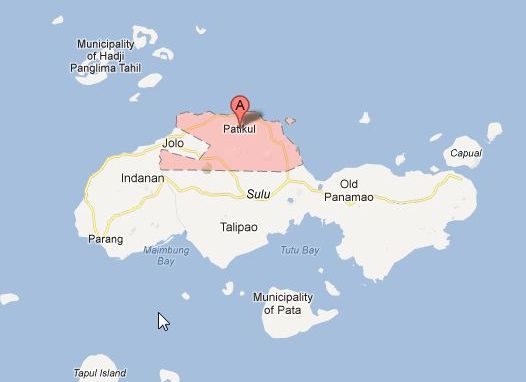
The fighting erupted after dawn Sunday and continued sporadically through the day in the mountainous hinterlands of Patikul town in Sulu province, where the Abu Sayyaf movement has survived in jungle encampments despite years of U.S.-backed Philippine military offensives.
At least 10 other marines were wounded in Sunday’s clash, regional military spokesman Lt. Col. Randolph Cabangbang said.
Regional military commander Maj. Gen. Rey Ardo ordered air force planes and navy ships to back up the government forces, ensure the recovery of the slain marines and transport the wounded to a hospital.
Cabangbang said the marines had been deployed in Patikul to check the reported sighting of hostages held by the Abu Sayyaf, which has been blamed for separate kidnappings of two Europeans, a Japanese, a Jordanian and two Filipinos.
The marines stumbled upon an undetermined number of militants under Abu Sayyaf commander Radulan Sahiron and allied gunmen of Tahir Sali of the larger rebel group Moro National Liberation Front, setting off a clash.
Sahiron and Sali, who maintain encampments in Patikul’s jungles, have long been suspected of collaborating to carry out kidnappings to raise funds, officials said.
The Europeans — Ewold Horn of the Netherlands and Lorenzo Vinciguerra of Switzerland — were seized by gunmen in February while bird watching in the southernmost island province of Tawi Tawi. They were later moved to nearby Jolo island in Sulu province, where they have been sighted by villagers in the custody of Abu Sayyaf gunmen, according to police.
Police initially believed the two were seized by ordinary kidnapping gangs.
Aside from the Europeans, the militants are believed to be holding a Japanese treasure hunter, along with a Jordanian TV journalist and two Filipino crewmen who reportedly traveled to Abu Sayyaf encampments in Sulu to interview the militants in June but have failed to return.
While Abu Sayyaf abductions still occur, they are far fewer today than the massive kidnappings that terrorized Sulu and outlying provinces in early 2000 when the brutal group still had many commanders and had strong ties with terrorist groups like the Indonesia-based Jemaah Islamiyah.
The militant Islamist movement has also received support in the past from al-Qaida.
The Abu Sayyaf — or Bearer of the Sword — was founded in 1991 in predominantly Muslim Basilan province near Sulu. With an unwieldy collective of preachers and outlaws, it vowed to wage jihad, or holy war, but lost its key leaders early in combat, sending it on a violent path of extremism and criminality.
The U.S. military deployed troops to the southern Philippines in 2002 to provide combat training, intelligence and drone surveillance to Filipino troops battling the Abu Sayyaf, which has an armed force of nearly 400 fighters. The American deployment then was sparked by the Abu Sayyaf’s kidnapping of three Americans, two of whom were killed while in the custody of the militants.